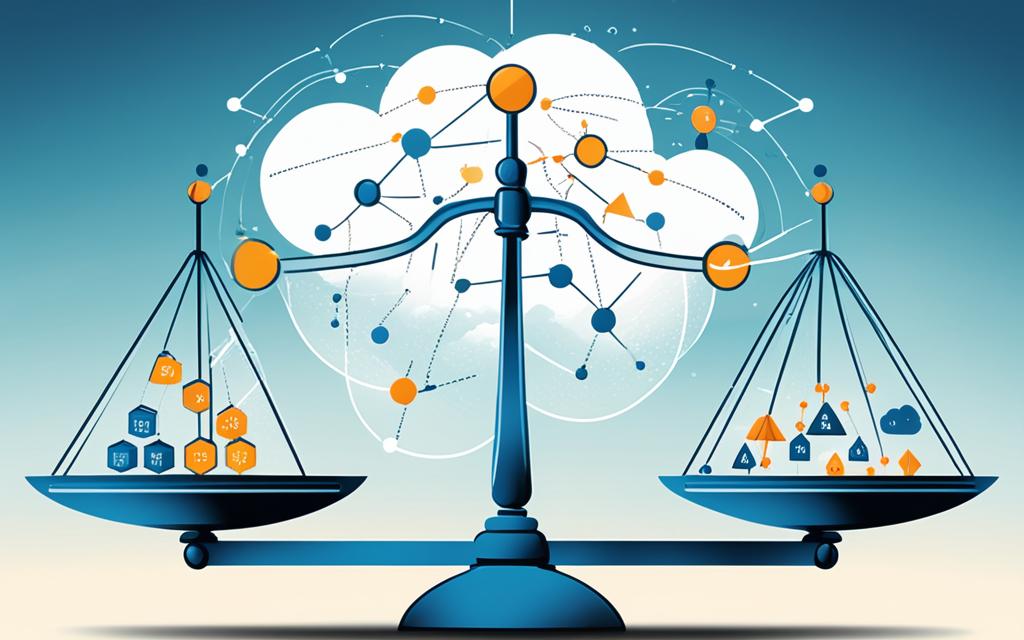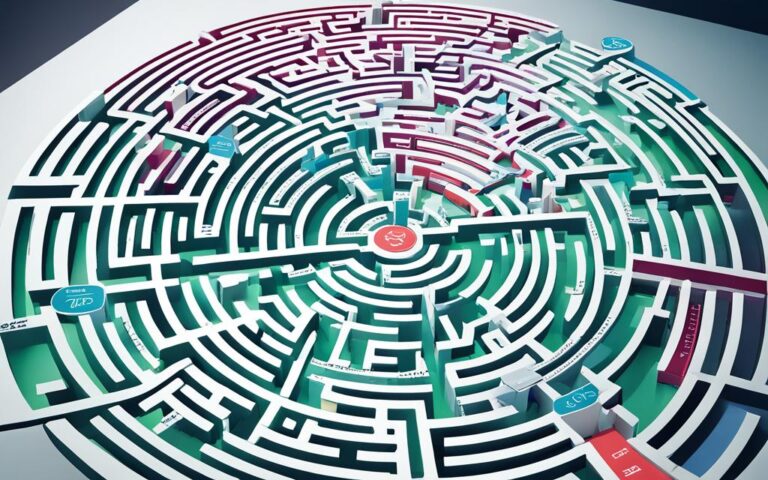Oppugning the Cloud: Debating Over Centralized vs. Decentralized Systems
Welcome to the great cloud debate! In the realm of cloud technology, two opposing forces have emerged – centralized and decentralized cloud architecture. The clash between these two approaches has sparked discussions around data sovereignty, security, and management. So, what’s the deal with these contrasting cloud systems? Let’s dive in and explore the exciting world of cloud architecture, where data sovereignty reigns supreme.
Centralized cloud architecture, as the name suggests, revolves around a single location where all your data takes center stage. It’s like having a grand library with stacks of information controlled by a central authority. This setup certainly has its perks – easier management and centralized control over your digital assets. It’s an ideal choice for large enterprises seeking streamlined data operations.
On the flip side, we have decentralized cloud architecture, a rebel breaking free from the traditional chains. In this dynamic setup, data gets dispersed across multiple locations, ensuring enhanced security, resilience, and control. It’s like having your data secretively scattered across various fortresses, making it harder for any single point of failure to bring down your empire.
So, buckle up as we embark on a thrilling journey through the pros and cons of centralized and decentralized cloud systems. Together, we’ll uncover the secrets behind data sovereignty, cloud architecture, and the never-ending quest for the perfect balance between control and freedom.
Understanding Centralized Cloud Architecture
When it comes to data storage and management, centralized cloud architecture is a game-changer. In this system, all data is stored and managed in a single location, giving organizations the convenience of centralized control and easier data management. With a central authority overseeing the operations, businesses can ensure seamless coordination and efficient decision-making.
“Centralized cloud architecture brings a sense of order and simplicity to data storage and management,” says Sarah Thompson, an industry expert in cloud technologies. “Having all the data in one place allows for faster access and streamlined workflows.”
One of the significant advantages of centralized cloud systems is efficient data storage. With data stored in a single location, businesses can implement robust and scalable storage solutions to accommodate their growing data needs. The centralized approach also simplifies data access and retrieval, enabling quicker decision-making and enhancing overall productivity.
Furthermore, risk management becomes more achievable with a centralized cloud architecture. By consolidating data in one location, businesses can implement comprehensive security measures, ensuring data confidentiality, integrity, and availability. Centralized control allows organizations to centralize their security protocols, reducing the risk of unauthorized access or data breaches.
Centralized Cloud Architecture:
| Advantages | Disadvantages |
|---|---|
| Easier data management | Dependency on a single location |
| Centralized control over data | Potential for data loss in case of system failure |
| Efficient data storage and retrieval | Increased risk of cybersecurity threats |
| Enhanced risk management | Potential interruptions in data access |
As Sarah Thompson puts it, “Centralized cloud architecture may be the preferred choice for larger enterprises that require a highly controlled and easily manageable data storage infrastructure.”
While centralized cloud architecture offers numerous benefits, organizations need to weigh the advantages against potential risks and consider their specific business needs. In the next section, we will explore decentralized cloud architecture for a contrasting perspective.
Exploring Decentralized Cloud Architecture
When it comes to cloud architecture, the centralized approach has long been dominant. But now, a new contender has emerged – decentralized cloud architecture. This innovative system challenges the status quo by distributing data across multiple locations, offering enhanced data privacy, security, and control.
In a decentralized cloud system, data is not confined to a single point of failure. Instead, it is spread across various locations, significantly reducing the risk of data loss or unauthorized access. This distributed approach ensures that even if one location is compromised, the rest of the data remains secure and accessible.
Security is a top concern for businesses and individuals alike, and decentralized cloud architecture addresses this issue head-on. By distributing data, it minimizes the impact of potential breaches, making it more challenging for attackers to gain control over sensitive information. This added layer of security grants users greater peace of mind, knowing their data is better protected.
Furthermore, decentralized cloud architecture empowers users with more control over their data. Instead of relying on a central authority to manage and manipulate data, individuals retain ownership and greater decision-making power. This level of control not only enhances data privacy, but it also allows for more customized data management solutions tailored to specific needs and preferences.
FAQ
What is centralized cloud architecture?
Centralized cloud architecture refers to a system where all data is stored and managed in a single location, controlled by a central authority. This architecture offers easier management and centralized control over data.
What are the advantages of centralized cloud systems?
Centralized cloud systems provide easier management and centralized control over data. They are often used by large enterprises that require centralized management of their data.
What is decentralized cloud architecture?
Decentralized cloud architecture involves distributing data across multiple locations, providing enhanced data privacy, security, and control. Data is stored in various locations, reducing the risk of a single point of failure and enhancing security.
What are the benefits of decentralized cloud systems?
Decentralized cloud systems offer enhanced data privacy, security, and control. By distributing data across multiple locations, they reduce the risk of a single point of failure and enhance security.










